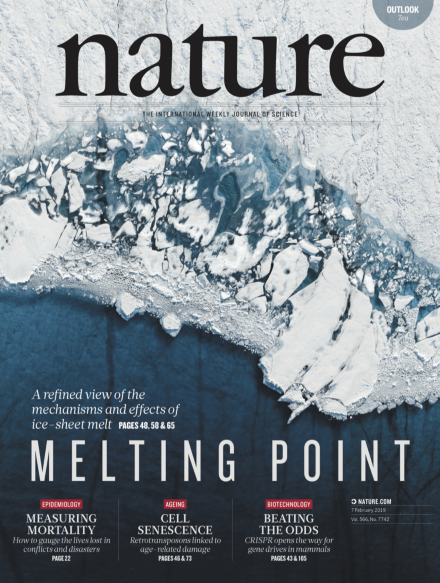Volume 566 Issue 7742, 7 February 2019
This Week
-
Editorial
-
-
World View
-
Research Highlights
-
Seven Days
News in Focus
-
News
-
Features
Comment
-
Comment
-
Books and Arts
-
Correspondence
-
Obituary
Technology
-
Toolbox
-
Bitcoin for the biological literature
Collection:
-
Careers
-
News
-
Features
-
Responding to the call of home
Career Guide:
-
-
Career Briefs
Futures
Research
-
News & Views
-
Articles
-
Letters

